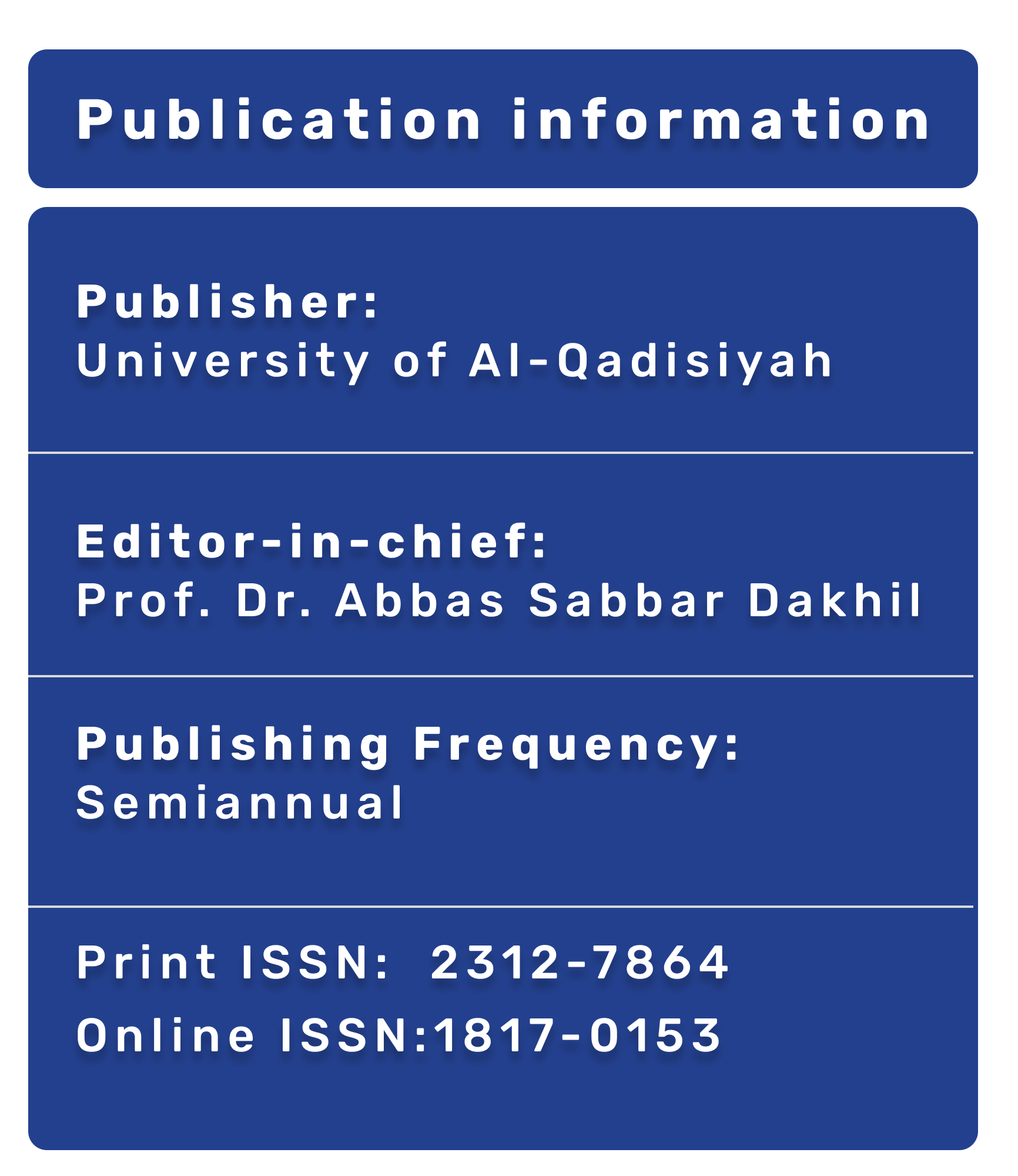الأعمال الأكثر قراءة لنفس المؤلف/المؤلفين
- Hawa A.A. Al-Dhahir, Ali .S.Baay, Amjed H. Abbas, Pulmonary Function Tests Abnormalities Predictors In Smoker Patients , مجلة القادسية الطبية: مجلد 10 عدد 17 (2014)
- Safaa H. Al-Turaihy, Amjed H. Abbas, A Study of Immunological and Clinical Effects of allergen immunotherapy on patients with allergic rhinitis in Babylon Province , مجلة القادسية الطبية: مجلد 6 عدد 9 (2010)








